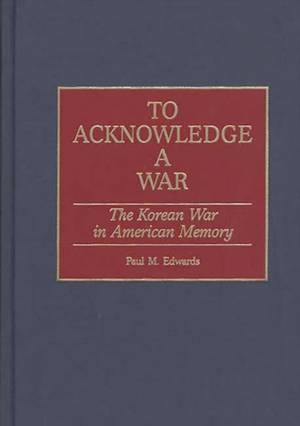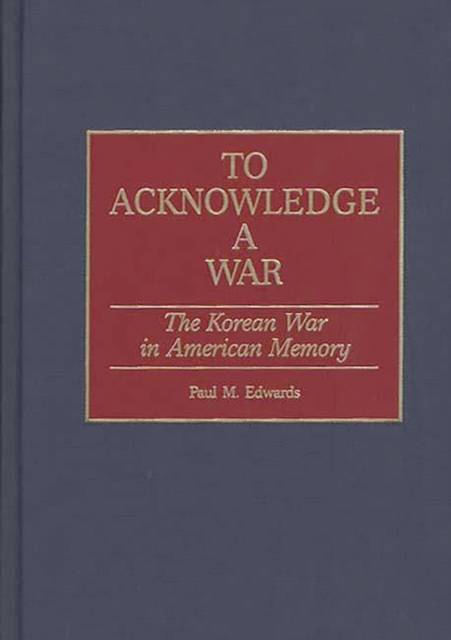
- Afhalen na 1 uur in een winkel met voorraad
- Gratis thuislevering in België vanaf € 30
- Ruim aanbod met 7 miljoen producten
- Afhalen na 1 uur in een winkel met voorraad
- Gratis thuislevering in België vanaf € 30
- Ruim aanbod met 7 miljoen producten
Omschrijving
Historians often refer to the Korean War as the forgotten war, but Edwards argues that in many respects it is a conflict that has been deliberately ignored for the past fifty years. This broad look at the war examines how Americans have attempted to remember and commemorate the confrontation which played such a major role in America's Cold War experience. As a United Nations effort or Police Action, the hazy identification of the war has in part contributed to a lack of public understanding of what happened in Korea. This book considers the American response to the loss in Korea, and how this response played out as a failure to remember.
After discussing the phenomenon of historical absence, the essays turn to the still considerable disagreement about who started the war and why. They provide the latest information concerning the relationship between Chairman Mao, Premier Kim Il Sung, and Chairman Joseph Stalin at the outbreak of the conflict. Edwards identifies lesser known figures and comments on operations that are not generally known or discussed. He discusses the impact that revisionist historians have had on our views of the war and why it produced a cease-fire rather than a peace treaty. The study also places this still unresolved conflict in the context of multi-national forces and peacekeeping actions as we understand them today.Specificaties
Betrokkenen
- Auteur(s):
- Uitgeverij:
Inhoud
- Aantal bladzijden:
- 192
- Taal:
- Engels
- Reeks:
- Reeksnummer:
- nr. 193
Eigenschappen
- Productcode (EAN):
- 9780313310218
- Verschijningsdatum:
- 30/06/2000
- Uitvoering:
- Hardcover
- Formaat:
- Genaaid
- Afmetingen:
- 161 mm x 241 mm
- Gewicht:
- 390 g

Alleen bij Standaard Boekhandel
Beoordelingen
We publiceren alleen reviews die voldoen aan de voorwaarden voor reviews. Bekijk onze voorwaarden voor reviews.











